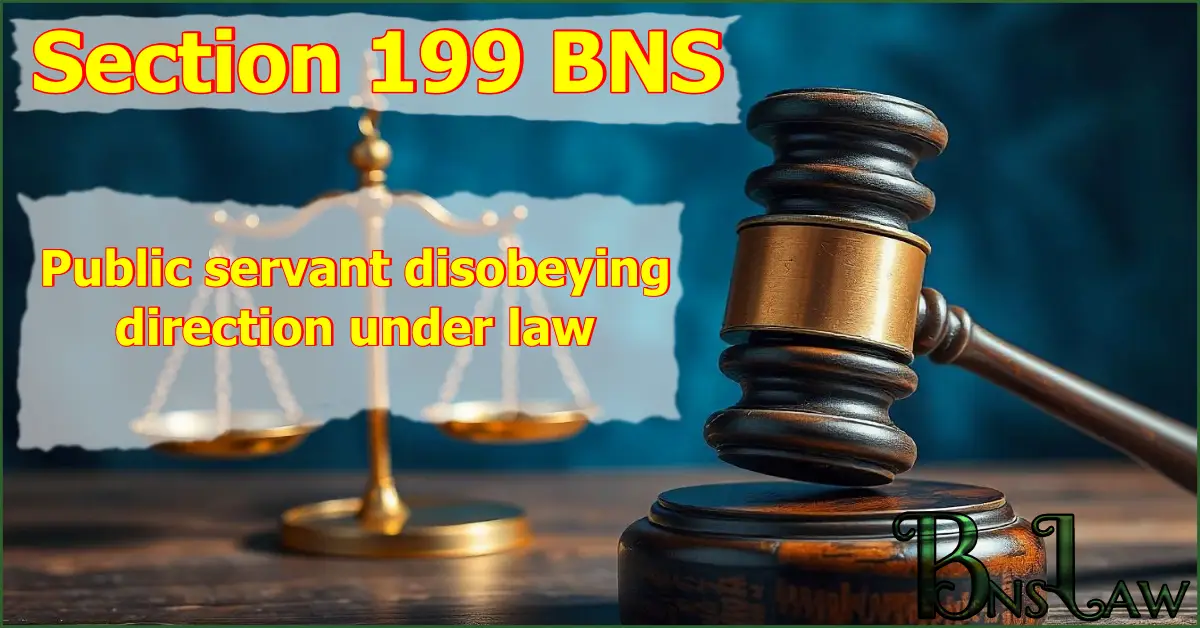Section 199 BNS | BNS 199
Whoever, being a public servant,—
(a) knowingly disobeys any direction of the law which prohibits him from requiring the attendance at any place of any person for the purpose of investigation into an offence or any other matter; or
(b) knowingly disobeys, to the prejudice of any person, any other direction of the law regulating the manner in which he shall conduct such investigation; or
(c) fails to record any information given to him under sub-section (1) of section 173 of the Bharatiya Nagarik Suraksha Sanhita, 2023 in relation to cognizable offence punishable under section 64, section 65, section 66, section 67, section 68, section 70, section 71, section 74, section 76, section 77, section 79, section 124, section 143 or section 144,
shall be punished with rigorous imprisonment for a term which shall not be less than six months but which may extend to two years, and shall also be liable to fine.
READ OTHER SECTIONS OF CHAPTER XII — OF OFFENCES BY OR RELATING TO PUBLIC SERVANTS
FAQs of BNS Section 199
-
199 BNS punishment and fine
Punishment and fine under Section 199 of the BNS: Rigorous imprisonment for not less than 6 months which may extend to 2 years and fine.
-
199 BNS cognizable or not
The offence under Section 199 of the BNS is cognizable.
-
199 BNS bailable or not
The offence under Section 199 of the BNS is bailable.
-
199 BNS trial court
Offence specified in Section 199 triable by the Magistrate of the first class.
Important Points
- Cognizable Offences: These are offences where a police officer can arrest a person without a warrant.
- Non-Cognizable Offences: These are offences where a police officer cannot arrest a person without a warrant.
- Bailable Offences: These are offences where the accused can get bail from the police station itself. All bailable offences are listed in the First Schedule of the Bharatiya Nagarik Suraksha Sanhita (BNSS).
- Non-Bailable Offences: Offences in which bail is not granted directly from the police station but after hearing the case in the court, the judge decides when bail will be granted. All non-bailable offences are listed in the first schedule of the Bharatiya Nagarik Suraksha Sanhita (BNSS).
- In the above FAQ, “trial court” means the court that has jurisdiction to try the offence.
- In the above FAQ, the expression “Magistrate of the first class” and “Any Magistrate” does not include Executive Magistrates.
Read other Sections of the BNS
Reference Link: New Criminal Laws (BNS), Ministry of Home Affairs







